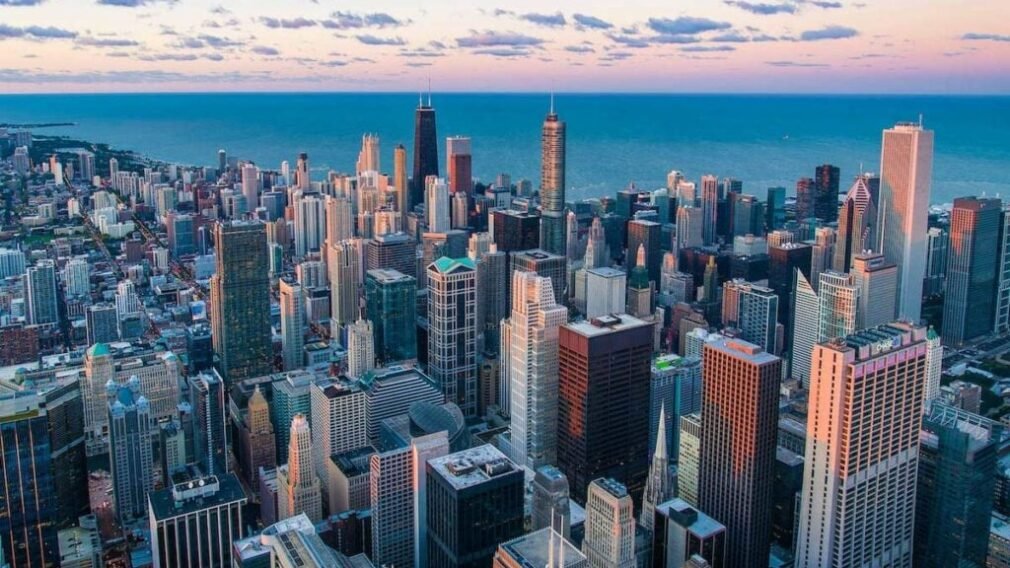Chicago Mayor Johnson Funds Budget Deficit With New Taxes on Gambling, Corporations
Chicago Mayor Brandon Johnson plans to close a $1.15 billion budget gap for 2026 by implementing a progressive tax and fee package aimed at corporations and the wealthy. The proposed $16.6 billion budget avoids increasing common taxes on working families, such as property, grocery, or trash collection fees. The plan relies on $586.6 million in new progressive revenue and a record $1 billion surplus from Tax Increment Financing (TIF) to support city services and public schools.

New Revenue Targets Online Wagering
A significant portion of the new revenue comes from the gaming and technology sectors. Chicago plans to extend its existing amusement tax to cover online sports betting revenue. This new tax is proposed at a rate of 10.25% of the Adjusted Gross Sports Betting Revenue (AGR) generated within the city.
The measure is expected to generate approximately $26 million in 2026. The tax would push the combined state and city tax rate for major gaming operators in Illinois above 50%, a cost the industry has signaled could prompt bettors to use illegal, untaxed platforms.
The administration is also focused on raising revenue from the technology sector. The city plans a second consecutive increase to the Cloud Computing Tax, which will raise the rate from 11% to 14%. This steep 27.2% jump is expected to generate $333 million in annual revenue. Critics from the Chicagoland Chamber of Commerce have labeled the 14% rate the “highest in the country” and potentially damaging to job growth.
Corporate Fees and Social Media Charges
Mayor Johnson’s plan restores and expands a previous employee charge, now renamed the Community Safety Surcharge. This fee will cost $21 per month per employee, more than five times the old rate, and will apply only to firms with over 100 workers. This measure aims to generate $100 million annually by targeting the largest 3% of Chicago businesses.
A new tax on social media is also included, generating $31 million. This tax, proposed as 50 cents per user after the first 100,000, is considered a national first. Johnson defended the measure by likening social media companies to “addictive substances” such as tobacco and nicotine, arguing their platforms contribute to rising trends in youth depression and mental health issues.
The budget also includes minor tax increases on large boats docked in Chicago ports and on hemp products, expected to bring in $4.1 million and $10 million, respectively. Additionally, the city will restructure its fee on ride-hailing services, changing it from a flat fee to a percentage in an expanded Downtown zone, expected to yield $65.4 million.
Dedicated Funds for Social Services
The new revenues are earmarked for special funds intended to protect social programs. Revenues from the employee fee and cloud computing tax will go into the Community Safety Fund. This money will finance violence prevention, a major seasonal youth employment program, and services addressing gender-based violence. The social media tax will fund the Protecting Care Fund. These funds will expand “care teams” used to replace police officers in responding to mental health emergencies. They will also support the reopening and expansion of city mental health clinics.
Mayor Johnson is counting on $44 million in revenue associated with Bally’s casino, despite reports that the temporary casino is performing below initial expectations. The budget avoids any mention of video gaming terminals (VGTs), which the mayor opposes, partly because their introduction would risk canceling a $4 million annual fee from Bally’s.
Recommended
